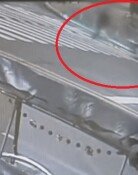U.S. Obtained Evidence in 2002 that N. Korea Has Highly Enriched Uranium
U.S. Obtained Evidence in 2002 that N. Korea Has Highly Enriched Uranium
Posted February. 06, 2005 22:37,
American experts on North Koreas nuclear programs are engaged in paper warfare over whether or not the North Korean regime has a highly enriched uranium (HEU) program.
The March-April issue of Foreign Affairs will publish an article co-written by Robert Gallucci, dean of the Walsh School of Foreign Service, and former ambassador when the 1994 Geneva Agreed Framework was reached between the U.S. and North Korea, and former State Department Policy Planning Director Mitchell Reiss. On February 5, Reuters reported that their article argues that North Korea does possess an HEU program.
Their contribution comes as a kind of refutation to another article published in the January-February issue of the same magazine authored by Selig Harrison, director at the Center for International Policy. Harrison wrote: The Bush administration distorted its intelligence on North Korea, seriously exaggerating the danger that Pyongyang is secretly making uranium-based nuclear weapons.
According to reports, Dean Gallucci and former Director Reiss denied Harrisons allegation that the Bush administration used North Koreas enriched uranium program to its political advantage. Instead, they countered Harrisons claim by saying that Harrison misunderstood the situation and is making wrong assertions.
In mid-2002, officials obtained clear evidence that North Korea had acquired material and equipment for a centrifuge facility that, when complete, could produce enough weapons-grade uranium for two or more nuclear weapons per year, Gallucci and Reiss said.
They said that Pakistani scientist Abdul Qadeer Khan provided Pyongyang with centrifuge prototypes and blueprints via his nuclear black market. They added that high-strength aluminum tubes acquired for North Korea by a German firm matched the technical requirements for a centrifuge.
In contrast, Harrison asserted that purchasing aluminum tubes was directed at achieving low-enriched uranium capability for an energy plant rather than the highly enriched uranium needed for weapons.
Pyongyang`s dismal record (of cheating the international community) demonstrates both the centrality of the uranium-enrichment issue to the six-party negotiating process and the need to ensure that any solution to the North Korean nuclear issue is thorough and verifiable, they pointed out.
While he was working as a correspondent in Northeast Asia for the Washington Post, Harrison was the first American reporter to visit North Korea and meet Kim Il Sung in 1972. He has been insisting that the U.S. stop getting involved in the Korean Peninsula and the Korean peninsula be turned into a non-nuclear neutral area.
Soon-Taek Kwon maypole@donga.com







